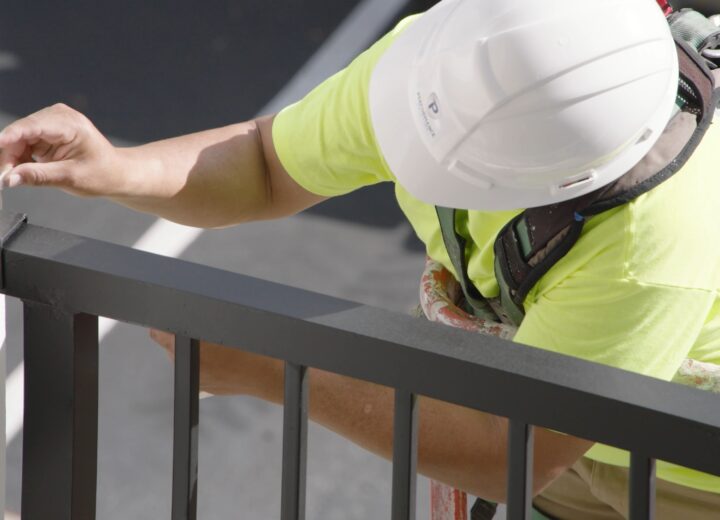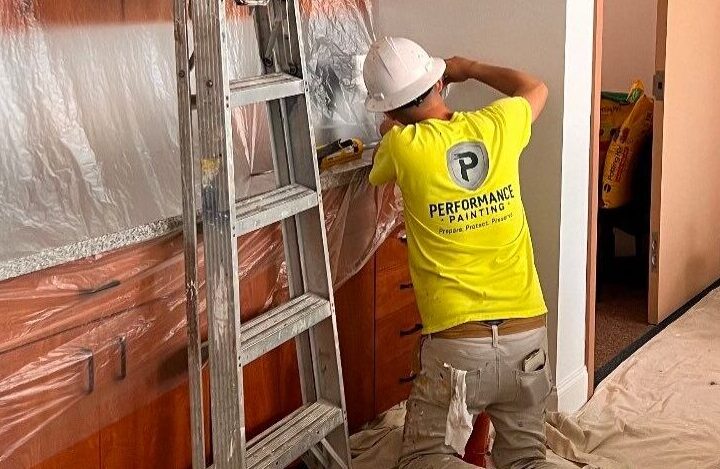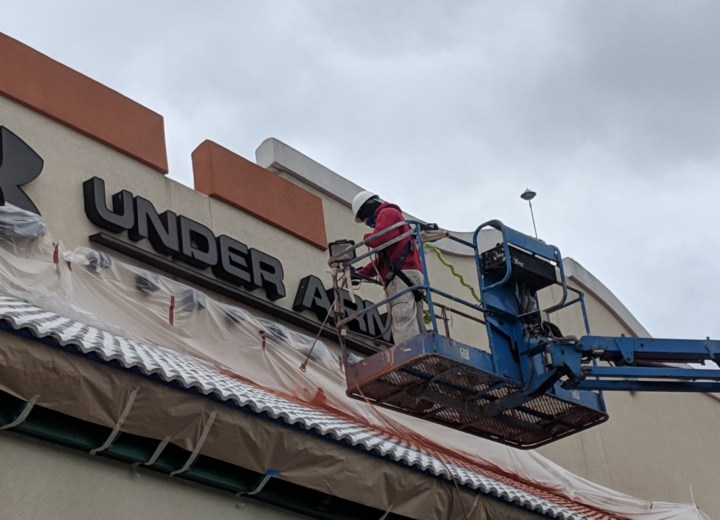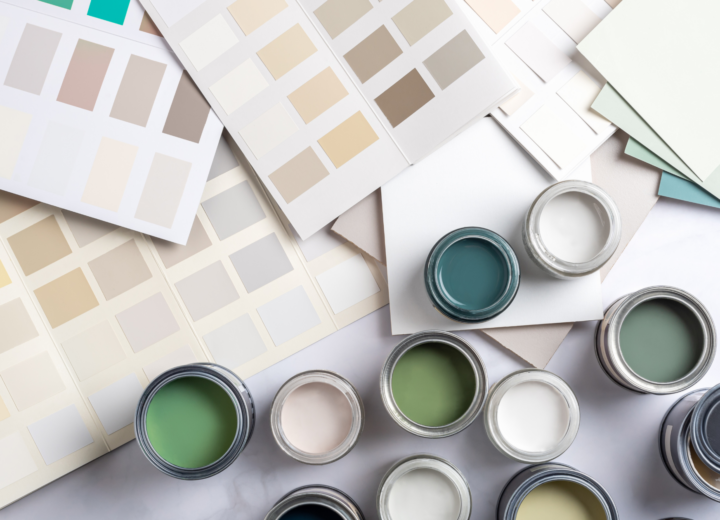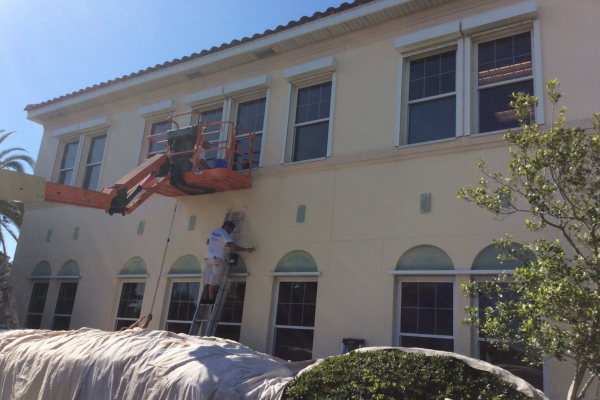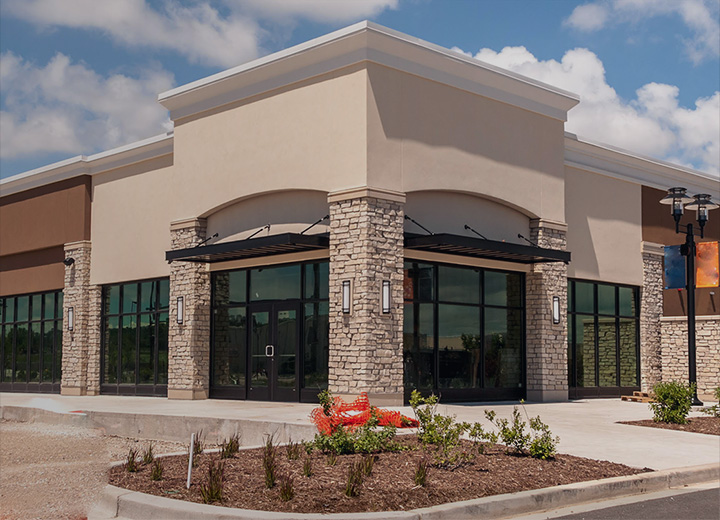In broad terms, corrosion refers to the deterioration of metals as a result of their reaction with the environment.
Unfortunately, corrosion isn’t only an aesthetic issue, as it can cause expensive and dangerous damage to buildings, bridges, machinery, equipment, electrical systems and pipelines.
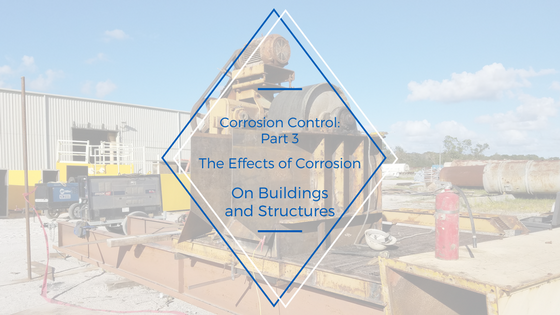
To help business professionals understand what’s really at stake, let’s review how corrosion can affect buildings and structures.
Structural Integrity of Buildings
The corrosion behavior and rate of different metal components depend on:
- The aggressiveness of the environment. In addition to dust, regular rainfall and the sulfur dioxide gas resulted from the combustion of fossil fuels (e.g. natural gas, oil, etc.), Jacksonville, Tampa and adjacent areas are predominantly characterized by high temperatures along with elevated relative humidity, salt and chloride levels.
Reacting with the moisture in the atmosphere, the salt, sulfur dioxide and chloride can significantly increase the rate of corrosion. Corrosion processes can also be exacerbated by higher temperatures and strong winds. For immersed metal structures, the rate of corrosion is determined by the water velocity, salinity and temperature.
- The total time during which the metal is exposed to a corrosive environment. A series of atmospheric factors can initiate and accelerate metal corrosion rates. Therefore, any professional industrial or commercial paint contractor can tell you that the application of corrosion resistant coatings and regular paint maintenance is absolutely necessary, especially in a harsh climate.
Typically, the metal components outside buildings are more subjected to atmospheric conditions and corrosion. But corrosion doesn’t stop there. It has infamously corrosive effects on all the metal elements, including those used inside buildings, in the foundation and structural walls.
In the absence of suitable corrosion control and prevention measures, corrosion processes can result in irreparable damage and serious structural problems that may emerge years later.
Although most corroded components and structures can be repaired and/or replaced, such projects are often cost prohibitive. It’s mainly for this reason that specialty literature advises contractors to carefully consider all the specifications along with the ability of metal components and coating systems to survive their environments during the project planning and design phases.
Market Value of Properties
Corrosion can sharply reduce the value of buildings, equipment, bridges, monuments and other structures. That’s because it can cause:
- The reduction of metal thickness, further leading to loss of mechanical strength, extensive damage and structural failure;
- Environmental contamination; as an example, leaking pipes, fuel tanks and vessels can have a disastrous impact on the entire ecosystem and public health.
If you intend to sell your property, an inspector will look for defects that can affect its value. A rusted roof, peeling paint on aluminum siding, badly corroded pipes that leak, or worse, structural damage like cracks in the foundation potentially resulting from corroded structural steel could significantly decrease the market value of a property.
To maintain your building in good shape, it’s critically important to call in an experienced industrial or commercial paint contractor at the first signs of deterioration. That’s because only a professional can determine what repairs are required in order to restore metal components and structures to good condition.
On the other hand, implementing some simple yet effective preventative maintenance activities, such as inspecting and re-coating metals with corrosive resistant coatings on a regular basis, can prevent corrosion damage before it happens. Not only do these coatings help avoid corrosion; they also reduce the extent of damage when it does occur.
To learn more about how you can realize significant savings by mitigating the adverse impact of corrosion on your building and equipment pieces, please feel free to contact our industrial and commercial painting contractors who have the qualifications, competencies, expertise and experience necessary to service all of your painting needs.

